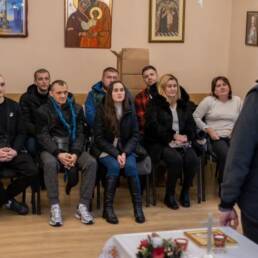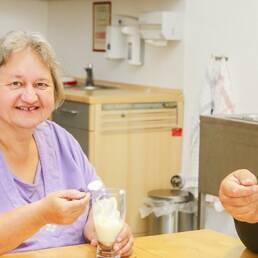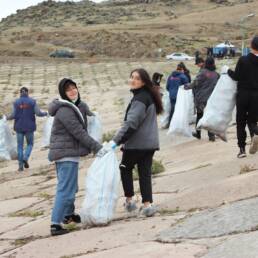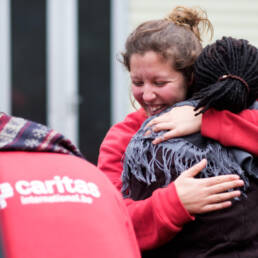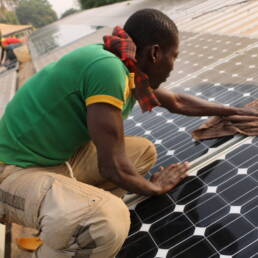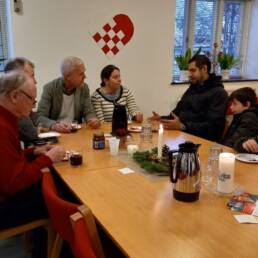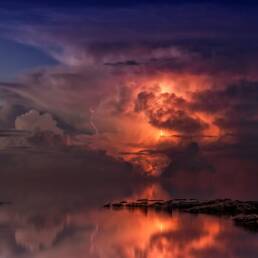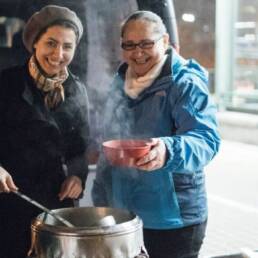Author
Sophie Izoard-Allaux
Law and Religions Chair
Religions, Spiritualities, Cultures, Societies Research Institute (RSCS)
Catholic University of Louvain
Summary
This crisis is without doubt one of the most serious that we have faced since the Second World War. It creates fear that takes on many faces: fear of catching the virus, of being seriously infected, of seeing one of your loved ones disappear. But also: fear of losing your job, of seeing your budget cut, of no longer or badly discerning the future. Or quite simply, hour by hour, we wonder: have we grabbed the wrong door handle, brushed against a contaminated person, or are we not already, without symptoms, a carrier, and vector of the virus. The crisis we are going through is touches all aspects of life. It undermines our health care system, while those who work in it do everything to save lives. It has a profound impact on our economy, modifies our relationship with work, reshapes our ideas about solidarity, and disrupts our daily lives. As a collateral effect of our desire to accumulate, which we see as the supreme horizon of human life, this crisis has dramatic sides, just as it has challenges and gives lessons. The world is suffocating, but nature is reborn.
No doubt, we were in a sort of practical denial of any possibility of failure and helplessness, the fear of which quietly haunted our busy and globalised society which ignores the ambiguity of human relationships, forgetting that we are nevertheless subject to a general principle of uncertainty, of the unknown, of mystery. In this sense, the crisis of changes that we are going through today is indeed a signal that profit as the only horizon is useless. Faced with the scale of this scourge, it is as if the Earth were telling us today: ‘stop, or else’. Even if this drama is catastrophic, may it not be in vain…
To lead us in this reflection, six points are proposed:
1. Wonder
Making room for humility and letting go of the desire to explain everything.
2. The intrusion of death into ‘my universe’
We are being forced to look death in the dace and accept that it is truly a part of life. This can be a time to reflect on the importance of our relationships and the dangers of our confined digital space.
3. Social distancing
Our ideas around solidarity are being challenged by the mandate to stay apart. While confinement limits the body, if frees the spirit. We thought we were only fit to work but we are discovering new ways to live and be creative.
4. The kairos of vulnerability
This health crisis reveals the façade of our society, and its vanity. Paradoxically, through our confinement, we have become more aware than ever of the need for the other. Despite the crisis, we can find peace in our necessary interdependence and we can allow that peace to be our hope.
5. Creating together
While we have been challenged in the way we practice solidarity by this health crisis, out of it new ways of engaging are being revealed. A creative togetherness is emerging from our recognition of the value of each person, and the gifts each can give.
6. Being present:
The time in confinement is a chance to rediscover the grace of the present moment, to capture the light of each instant. As Camus writes in his book, The Rebel, ‘True generosity towards the future consists in giving everything to the present’, Albert Camus, The Rebel.
About the author
Doctor in Theology and jurist, Sophie Izoard-Allaux, a former graduate of the College of Europe (Bruges), is a specialist in social ethics, and more specifically on the question of religion and spirituality in organizations. She is an associate lecturer and researcher at the “Meaning and Work” Chair of the Institut Catholique des Arts et Métiers (Lille) and a scientific collaborator at the Institute of Religions, Spiritualities, Cultures and Societies (RSCS) of the Catholic University of Louvain.


